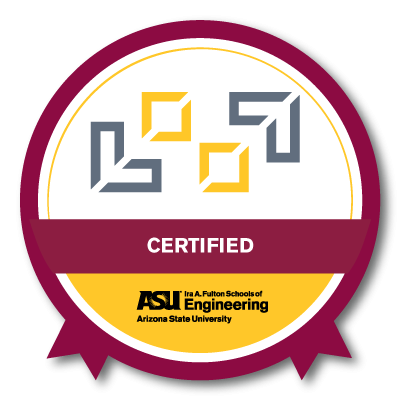Program Description
Well-designed experiments are a powerful tool for developing and validating cause and effect relationships between factors when evaluating and improving product and process performance. Deliberately changing the input variables to a system allows for observation and identification of the reasons for the change that may be observed in the output responses. Design of Experiments can identify important interactions that are usually overlooked when experimenters vary only one factor at a time (OFAT experimentation). Unfortunately, OFATS are still widely used in many experimental settings.
Design of Experiments can be used in a variety of experimental situations. This program is suitable for participants from a broad range of industries, including electronics and semiconductor, automotive, aerospace, chemical and process, pharmaceutical, medical device, and biotechnology. There are also many business and commercial applications of designed experiments, including marketing, market research, and e-commerce. Program participants will learn how to run effective and strong experiments using modern statistical software.
Program Topics
We are proud to offer the Design of Experiments Specialization through the Coursera platform. The course is instructed by Dr. Doug Montgomery, a Regents Professor of industrial engineering and statistics in the Ira A. Fulton Schools of Engineering at ASU, and an expert in experimental design. Dr. Montgomery has taught academic courses on experimental design for over 40 years, and his Design of Experiments textbook, in its 10th edition and utilized in the specialization, is the most widely used textbook on the subject in the world. He has also led numerous engagements with Design of Experiments, teaching the course and consulting for more than 250 companies, including Motorola, Intel, Boeing and IBM. Drawing from these commercial experiences, Montgomery provides participants with an accurate understanding of modern approaches to using Design of Experiments.
The specialization is offered in a four-course format, with each course comprising three-to-four units and, in most courses, an applied project to demonstrate the tools and concepts learned. Accessible entirely online, the courses can be attempted at your own pace. We recommend completing one unit per week.
Live Fireside Chats
Unique to this specialization, Dr. Montgomery hosts monthly fireside chats using Zoom where he discusses different topics in the areas and application of Design of Experiments concepts. Drawing from his expertise and vast network, Dr. Montgomery is frequently joined by a special guest and expert in the topic area being discussed. Planned for the second Wednesday of every month, these chats are open to the public for viewing. During this time, viewers can ask questions to Dr. Montgomery and his guest related to Design of Experiments’ concepts, application, and situational experiences. The previous fireside chat recordings can be found here.
If you would like information on how to join the monthly live fireside chats, please contact us at [email protected].
Specialization Courses
Experimental Design Basics
Unit 1: Getting Started and Introduction to Design and Analysis of Experiments
Unit 2: Simple Comparative Experiments
Unit 3: Experiments with a Single Factor - The Analysis of Variance
Unit 4: Randomized Blocks, Latin Squares, and Related Designs
Factorial and Fractional Factorial Designs
Unit 1: Introduction to Factorial Design
Unit 2: The 2^k Factorial Design
Unit 3: Blocking and Confounding in the 2^k Factorial Design
Unit 4: Two-Level Fractional Factorial Designs
Response Surfaces, Mixtures, and Model Building
Unit 1: Additional Design and Analysis Topics for Factorial and Fractional Factorial Designs
Unit 2: Regression Models
Unit 3: Response Surface Methods and Designs
Unit 4: Robust Parameter Design and Process Robustness Studies
Random Models, Nested and Split-Plot Designs
Unit 1: Experiments with Random Factors
Unit 2: Nested and Split-Plot Designs
Unit 3: Other Design and Analysis Topics
If you would like to take all four courses, we recommend taking them in the above order. Each subsequent course will build on materials from the previous.
Textbook and Software
The textbook used throughout the specialization is Design and Analysis of Experiments, 10th Edition by Dr. Douglas C. Montgomery. Students are recommended to purchase or rent the textbook, but are not required. The courses within the specialization also utilize JMP statistical software. Participants have access to a free trial in the courses.





